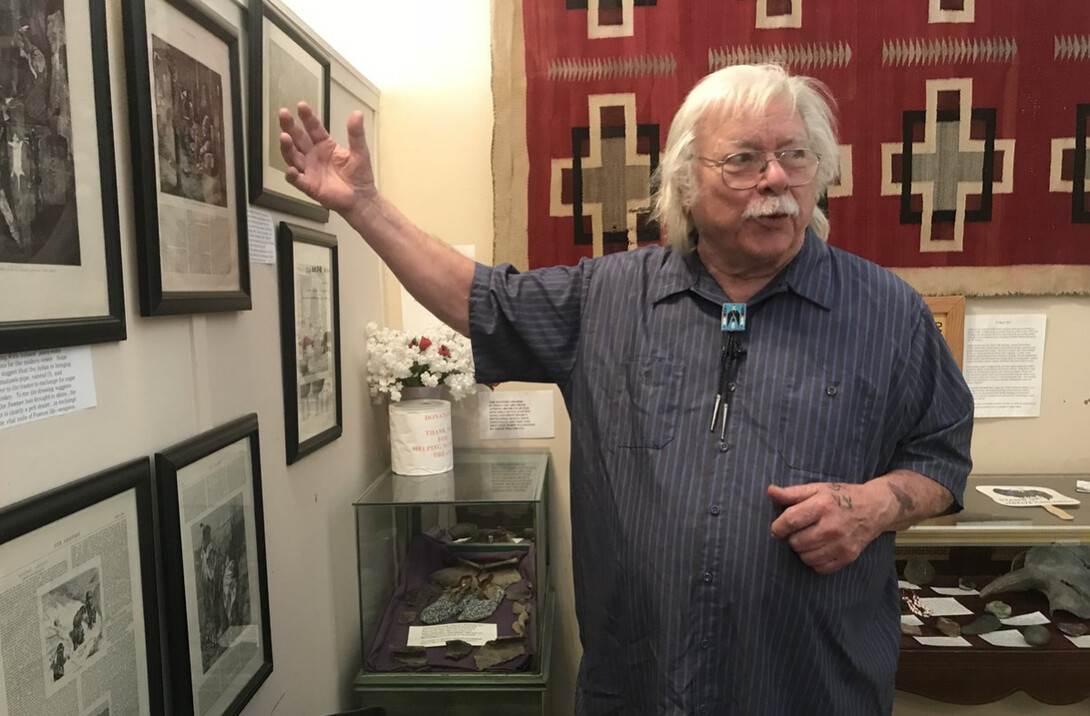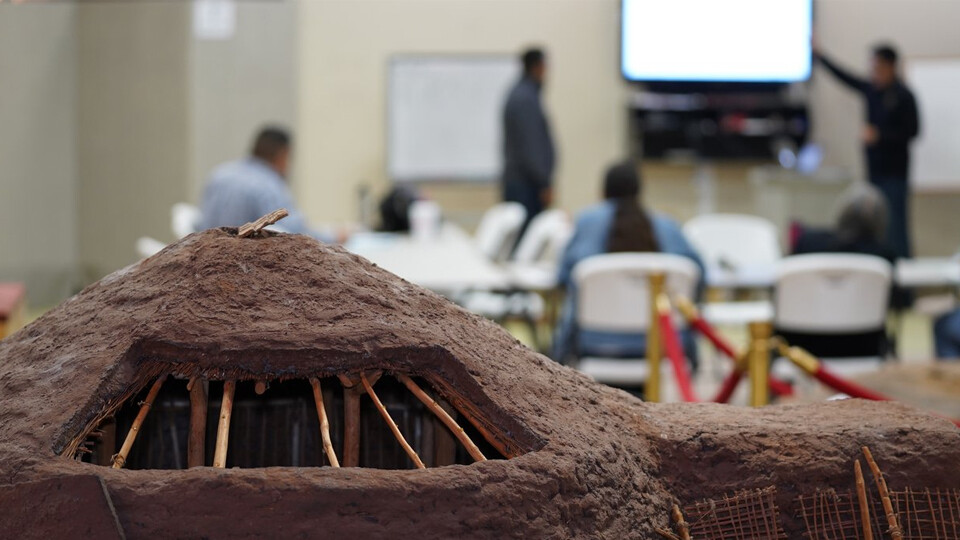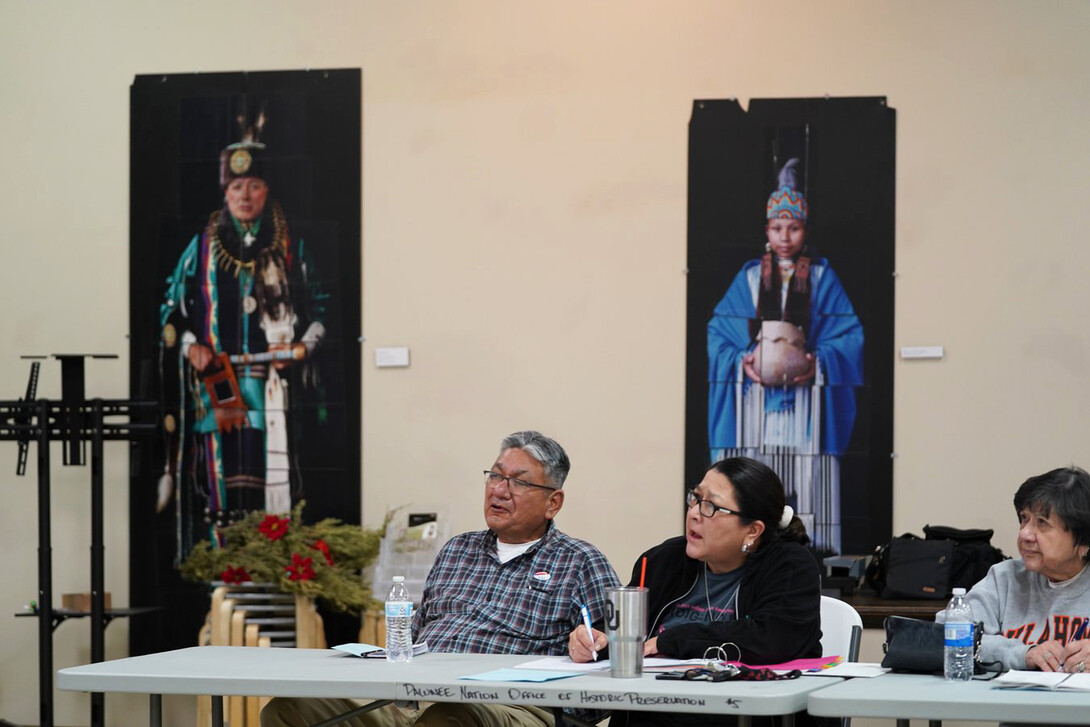
In 2007, Nebraska humorist and writer Roger Welsch did something that was then unprecedented — he gave his land to the Pawnee Nation.
Welsch’s homestead was comprised of 60 acres along the Loup River near Dannebrog. It had belonged to the Pawnee people before the U.S. government forcibly removed and relocated them to Oklahoma in 1875.
The story of Welsch’s reconciliation and the resulting re-emergence of Pawnee culture in Nebraska was told in the short film “Return of the Pawnees,” which premiered on Nebraska Public Media as part of its “Nebraska Stories” series in 2021. The film recently won a gold Telly Award in the Television-Cultural category and has been nominated for a Heartland Emmy.
“We’re really proud of the film, because we think it’s a really beautiful film,” said Margaret Jacobs, co-producer of the film and Charles Mach Professor of history at the University of Nebraska–Lincoln. “Our film is about joy and human connection. We were really excited to receive the recognition.”
Jacobs, who also serves as director of the Center for Great Plains Studies, co-produced the film with Kevin Abourezk, a Lincoln journalist, activist and member of the Rosebud Sioux Tribe. It is directed by Charles “Boots” Kennedye, an Oklahoma-based filmmaker and member of the Kiowa Tribe. The story was also shared in the podcast Jacobs and Abourezk produced for their multimedia project “Reconciliation Rising.”
“(Roger) was our first interview for the project because he was the person both Kevin and I immediately wanted to showcase,” Jacobs said. “He is somebody who was practicing reconciliation and was engaged in all the things that we think are really important — confronting the injustices of the past, taking responsibility for them and then finding ways to move forward and do something positive.”

Abourezk and Jacobs said the awards recognition is wonderful, but they are most gratified by the response they’ve received from viewers of the film.
“It’s really great that people are seeing value in and are enjoying the work we’re doing,” Abourezk said. “‘Return of the Pawnees’ was a very evocative and important piece of work, sharing a story of a land return that happened here in Nebraska, and the history of returning Native American ancestral remains, which first happened in Nebraska.”
The Nebraska Legislature passed the Nebraska Unmarked Human Burial Sites and Skeletal Remains Protection Act in 1989, which is touched on in the film. As a member of the Nebraska State Historical Society board at the time, Welsch initially opposed the legislation, but after learning more and speaking with tribal members, he resigned and became an ally to the tribes. A federal law, the Native American Graves Protection and Reparation Act, followed in 1990 and required museums and universities to complete inventories of human skeletal remains and sacred objects and work with descendants on repatriation. The Pawnee Nation has reburied remains on their ancestral Nebraska lands, thanks in part to Welsch’s action.
“It’s a bit of history that few people know about,” Abourezk said. “Nebraska was actually the first state in the nation to pass legislation that required museums and other institutions to return ancestral remains to tribal nations. That’s just incredible, and very few people know about it, or that land has been returned by private individuals and that Roger was the one who started what has become a larger movement.”
“Reconciliation Rising” was launched in 2018, when Jacobs earned an Andrew Carnegie Fellowship from the Carnegie Corporation. The multimedia project includes a web archive, podcasts and the film, all exploring how Indigenous and non-Indigenous Americans are engaged in confronting painful and traumatic histories and promoting dialogue and pathways toward reconciliation. Jacobs co-directs the project with Abourezk.

Originally, the production team set out to tell these stories in an audio-only format, but Abourezk suggested taking video of the interviews, too.
“We added Boots Kennedye to our team to interview Roger Welsch, and I’m so glad we did because it became the core of our film, and it was great to have a professional videographer with us,” Jacobs said. “I don’t know that we would have made a film if Kevin hadn’t made that fateful request.”
With the support of Vision Maker Media, the “Reconciliation Rising” team was able to produce “Return of the Pawnees” and is working on a feature-length documentary chronicling land reconciliation throughout the United States. Filming was slowed by the COVID-19 pandemic, but Jacobs said they hope to finish filming this summer, with a 2023 release.
The “Reconciliation Rising” team also includes Gabrielle Mace, graduate research assistant, and Daelyn Zagurski, undergraduate research assistant.







